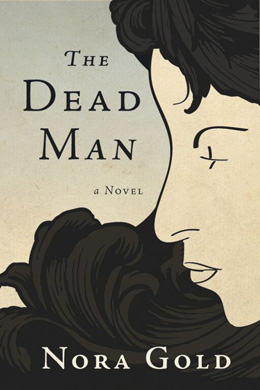 Reviewed by Ruth Latta
Reviewed by Ruth Latta
The Dead Man
by Nora Gold
Inane Publications
2016, ISBN 978-1-77133-261-3
Nora Gold’s third work of fiction, The Dead Man, is a must-read for anyone who likes to analyse relationships. Eve’s obsession with her ex-lover, Jacob Gladstone, has been going on for five years, ever since the end of their five-month-long affair. A music therapist and composer, Eve recognizes that her inability to get over him is unhealthy, yet she finds it “kind of interesting…like watching a psychopath in a movie.” Whenever she leaves her home in Canada for Israel, where he lives, her obsession flares up and she makes hang-up phone calls to his home, hoping to get him, not Fran, his wife of many years and the mother of his children.
The novel opens the last week of December in the recent past, with Eve on an airplane to Israel for a music therapy seminar, knowing that she will succumb to temptation and call Jake’s house again. Eve is no teenager; she is a widow in her fifties, the mother of two sons in their late teens. Jake Gladstone, seventy, is a world-renowned music theorist, critic, and ethno-musicologist, the greatest living authority on Jewish music. He was Eve’s mentor as well as her lover.
Eve is convinced that the music she has written in recent years is good, but she can’t get it performed. Aspiring artists, including writers, will relate to her frustration, and agree with her remark that “Fame and talent have only an incidental relationship to each other.”
She realizes that there is something she doesn’t understand about her obsession with Jake, “some mystery she can’t solve”, and the novel is about solving the puzzle. Her first step in getting over Jake is to present him as a case study, her assignment for the music therapy seminar. After hearing his history of problematic relationships, the other participants agree that he is a “destructive, scary man.” Her experiences at a conference, and at her cousin’s kibbutz, however, reveal that her inability to put Jake behind her also relates, predictably, to her own formative experiences.
Many aspects of The Dead Man will attract readers. Some will love it for its Israeli setting; others because it involves the world of music; some will enjoy the erotic passages. The redeeming power of art comes into play when Eve acts on inspiration:
Walking back towards her cousin’s house, she crosses a long meadow… and hears a bird’s song she never heard before…. And from all this bird music and from the proximity of this friendly, humorous, visiting bird, she realizes that her Bird Song, the piece she started composing two days ago, is completely lacking in joy… So she grabs a pen and notebook…[S]cribbling furiously, she sinks down cross-legged into the squishy marshes and flowers and writes happiness and joy into her music.
Reading The Dead Man, I wondered why a therapist who recognizes that she has a problem wouldn’t consult another mental health professional about her obsession. Often I felt as if an acquaintance was confiding too much, but the intimate confessional tone is exactly what will attract many readers. The novel will interest other writers because of its narrative features. Ms. Gold avoids murky stream-of-consciousness passages by presenting the story in the third person. Flashbacks are signalled by a shift from present tense to past. A writer-in-residence at the University of Toronto’s Ontario Institute for Studies in Education, and a prize-winning author, Ms. Gold knows her craft.
For information about Ruth Latta’s novels, visit http://ruthlattabooks.blogspot.com